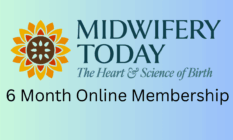
Photo by Sreenivas
Preparing The Nest
At the end of her first pregnancy, Liliana was living in a hostel. One day she decided that the bathrooms and the corridors were dirty. She felt an urgent need to clean them. Then she left the building. She had to sweep the sidewalk. The next day her labor started.

 Michel Odent, MD, has been in charge of the surgical unit and the maternity unit at the Pithiviers (France) state hospital (1962–1985) and is the founder of the
Michel Odent, MD, has been in charge of the surgical unit and the maternity unit at the Pithiviers (France) state hospital (1962–1985) and is the founder of the 
























